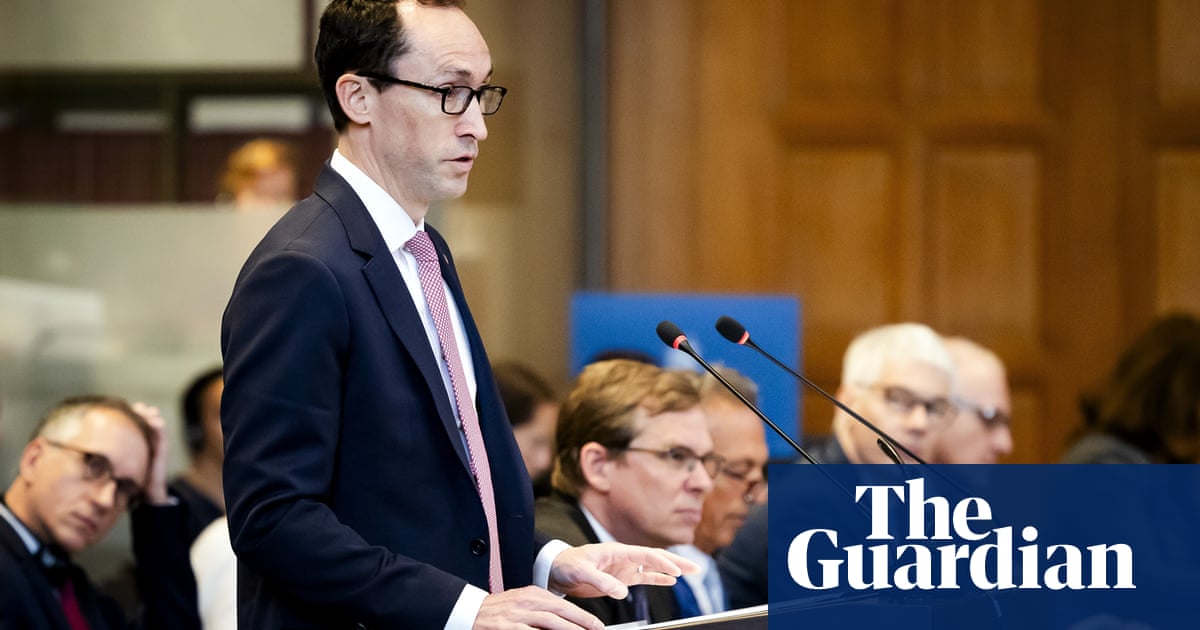The shadow cabinet ministers Robert Jenrick and Chris Philp are putting judges’ “lives at risk” by launching “ill-chosen” attacks on their integrity, the outgoing extremism tsar has said.
Lord Walney, who until last week was the Conservative-appointed watchdog on political violence, said the senior Tories were “deeply wrong” for indicating that judges were ideologically driven when enforcing the law.
The comments follow an intervention by the lady chief justice, Sue Carr, who said this week she was “deeply troubled” by comments made by Keir Starmer and Kemi Badenoch about a named immigration judge who allowed Palestinian refugees to come to the UK from Gaza.
Jenrick, the shadow justice secretary, went further than his leader and described the same decision as a “sick joke”, telling GB News it was “an outrageous example of judicial overreach” that in effect means “anyone from any conflict zone can come into the UK to be with any family member”.
Last week, Philp wrote on Twitter that “judges have twisted the meaning of ECHR [European convention on human rights] Articles to protect paedophiles instead of children” after a Zimbabwean offender was allowed to stay in the UK because he faced “substantial hostility” if sent to his home country.
Walney, whose position was axed by the government last week, wrote to the lord chancellor, Shabana Mahmood, and Lady Carr to express his concerns about the intimidation of judges as one of his last acts in the role.
Focusing on comments made by Jenrick and Philp, Walney told the Guardian: “It is deeply unfair when politicians – and newspapers – suggest that judges are pursuing an ideological agenda when they are in fact doing precisely what the law demands of them in implementing human rights law even when it protects criminals we would like to throw out of the country.
“Claiming that judges are making these rulings because they are lefties who hate Britain is not only deeply wrong, it is endangering the safety of public servants who see horrendous spikes in online threats and abuse when their motives are publicly questioned.”
In January, Carr launched a security taskforce to identify improved security for judges and online abuse, and oversee their implementation. In June, a man was jailed for pinning down and repeatedly punching a judge, Patrick Perusko, during a family court case.
Walney, who was formerly the Labour MP John Woodcock, said the review commissioned by Carr “should not only examine better physical protection for judges, it should lead to better understanding and restraint from politicians who can put lives at risk with ill chosen words”.
In a further indication of Tory distrust of judges, the former prime minister Liz Truss told the Conservative Political Action Conference (CPAC) in Maryland, US, on Wednesday that the British judiciary “is no longer accountable”.
“The same people are still making the decisions. It’s the deep state, it’s the unelected bureaucrats, it’s the judiciary,” she told the audience.
after newsletter promotion
Starmer and Badenoch’s exchange at prime minister’s questions last week referenced reports of an appeal by the Palestinian family against the decision by an immigration tribunal judge in September to dismiss their claim. A further appeal was allowed by upper tribunal judges in January.
Carr said she was “deeply troubled to learn of the exchanges” at PMQs and told reporters she had written letters about her concern regarding judicial decisions.
“It is for the government visibly to respect and protect the independence of the judiciary. Where parties, including the government, disagree with their findings, they should do so through the appellate process,” she said.
Responding to Carr’s concerns, Philp said politicians were “perfectly entitled to comment on decisions by judges”. Jenrick said: “The principle of the rule of law is being misused. It needs to be reclaimed. It does not, and never has meant, rule by lawyers.”
The Conservative party was approached for a comment.

.png) 2 months ago
28
2 months ago
28













































